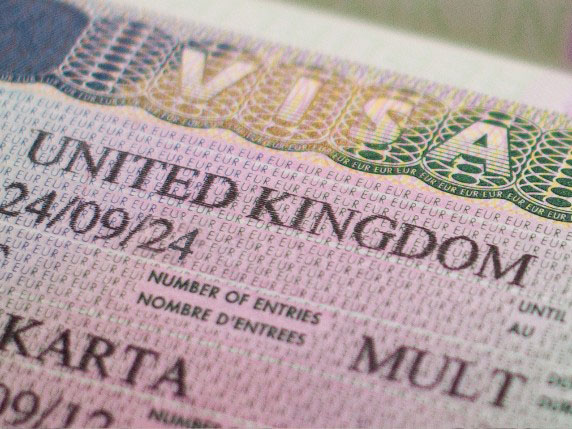Below we’re commenting on September’s most relevant legal changes that could affect your business.
Jump to:
Commercial
Department for Business Energy and Industrial Strategy (BEIS) guidance for improving consumer contract understanding
Further to our recent advice that consumer rules are modernising, this month BEIS has published guidelines including techniques on how businesses can improve customer engagement and understanding of their contractual terms and conditions and privacy policies online. This includes looking at presentation of terms and conditions and privacy notices, and possible comprehension testing in some sectors. From evidence-based research and academic literature it is suggested that the most effective techniques include:
- key terms being set out as FAQs;
- using icons, illustrations and comics particularly for key terms;
- contractual terms being displayed within a scrollable text box, not ‘click to view’ boxes;
- information should be succinct and provided at the right time; and
- telling customers how long it will take to read a policy and a warning of their last chance to read information before they make a decision.
These are broad brush guidelines which are not business or industry specific, but are a good starting point, as customers who understand terms and conditions better are less likely to complain, which can save time and money defending a dispute and protects a business’s reputation.
Immigration Law
Changes to the immigration rules
On 9 September 2019 it was announced that Immigration Rules HC 2631 amend the Immigration Rules that are used to regulate people’s entry to and stay in the United Kingdom. For in-depth analysis please contact our specialist immigration law team, but briefly the changes relate to:
- Revised access to the EU Settlement Scheme for the family members of UK nationals returning from a European Economic Area (EEA) Member State or Switzerland and other technical changes to the EU Settlement Scheme and EU Settlement Scheme (EUSS) family permit. In particular, they provide:
- access to the EUSS until 29 March 2022, in both ‘deal’ and ‘no deal’ scenarios, for existing close family members (where the relationship existed on exit day) of UK nationals returning with them from the EEA or Switzerland having lived there together while the UK national exercised their free movement rights;
- access to the EUSS until 31 December 2020, in both ‘deal’ and ‘no deal’ scenarios, for future spouses, civil partners and durable partners (where the relationship was established after exit), and other dependent relatives, of UK nationals returning with them from the EEA or Switzerland having lived there together while the UK national exercised their free movement rights;
- further clarifications on definitions in the Appendix;
- A child aged under 21 could apply for settled status under the EUSS on the basis that their parent would qualify for it if they could apply, which, as a British citizen, they cannot. There are also a few other changes in this area;
- Offshore working is permitted absence from the UK, and can be included as UK residence for the purposes of an EUSS application;
- a family member relying on an EEA citizen who has ‘ceased activity’, must have been resident in the UK as their family member at that point and there is clarification on what evidence of family relationship is required.
- Where a child is under 18, an applicant who relies on being the ‘dependent parent’ of an EEA citizen will now need to evidence that dependence.
- some additional grounds for the cancellation and curtailment of EUSS status and leave.
- Administrative review - a new online system where an applicant challenges a decision on their application for administrative review where the original application was made online. This is in line with the Government’s ‘digital by default’ programme. The changes also mean that the time frame for applying for an administrative review under the EUSS matches the time frame for all other administrative reviews in cases where the applicant is detained pending their removal from the UK, so that detention is kept to a minimum.
- Replacing references to the Dublin Arrangements - which determine which member state is responsible for considering an asylum application. Some of the existing Immigration Rules relating to the return of certain asylum applicants to safe third countries specifically refer to the Dublin Regulation and to EU membership. These Rules concern asylum applicants in the UK who have previously travelled through, claimed asylum or have been granted asylum in EU countries. In the event of a no-deal EU exit, these Dublin Regulation provisions will no longer apply to the UK. The Rules change addresses this but widens the scope of other third country Rules to deal with these cases.
- Expediting the grant of ‘leave to remain’ on children who have been transferred to the UK under section 67 of the Immigration Act 2016 - in June 2018 the UK introduced ‘section 67 leave’ ensuring that children who are transferred to the UK under section 67 of the Immigration Act 2016, and who do not qualify for refugee status or international protection, are able to remain in the UK. Currently, the Immigration Rules only allow section 67 leave to be granted to those who have already had an application for refugee status or humanitarian protection refused. This change means that section 67 leave will automatically apply upon the child’s arrival but this does not remove the entitlement of the child to apply for, or continue with an application for, refugee status or humanitarian leave.
- Minor amendments to business sectors, employment, and talent categories listed in the rules – in relation to start-ups and innovators for people seeking to establish an innovative, viable and scalable business in the UK, whose business ideas are supported by an authorised endorsing body, the changes are:
- students who have submitted a start-up application supported by an endorsing body to commence their business activities can remain whilst their application is being considered;
- clarifications about endorsing bodies are being made but requests may be refused due to potential or actual conflicts of interest, or conflicts with the purpose of the categories or with wider immigration policy;
- correction is being made so a checkpoint between an applicant and their endorsing body is not required after 24 months in the start-up category, only in the Innovator category.
- The Tier 1 (Entrepreneur) category is now closed to most initial applications but remains open to existing Tier 1 (Graduate Entrepreneur) and Tier 1 (Entrepreneur) migrants applying for extensions.
- The Tier 1 (Investor) category is for high net worth individuals making an investment of at least £2million in the UK. The following changes are being made: qualifying investments must move out of UK Government bonds before either 6 April 2023 in the case of extension applications, or 6 April 2025 in the case of settlement applications. Also, investors who do not meet those deadlines are to apply for further extensions and settlement if they meet certain conditions. The changes in March 2019 also mean applicants must provide evidence of their available funds for 2 years now, not just 90 days, as previously. If you require more detailed information, please contact us.
IP Law
Copyright can also protect products that have design rights (G-Star vs Cofemel)
In the case of G-Star v Cofemel, G-Star accused Cofemel of producing clothing which copied some of G-Star’s designs. Historically it is recognised that any original subject matter which includes an author’s own intellectual creation can be classified as a ‘work,’ within the meaning of the directive on copyright. Further, secondary EU legislation has established protection for designs which could apply in combination with the directive on copyright. So, a design may, in a particular case, also be a ‘work.’ Protection of designs is to protect subject matter which is new and distinctive but also functional and liable to be mass-produced. Protection of designs is applicable for a limited time, ensuring a return on the investment necessary for the creation and production of that subject matter without excessively restricting competition. Whereas, the protection of copyright lasts longer and is only for subject matter which can be classified as ‘works’. Granting protection, under copyright, to subject matter already protected as a design must not undermine the respective objectives and effectiveness of the two sets of rules, and so the grant of both protections will only work in certain situations.
The Court stated in this case that ‘the aesthetic effect produced by a design does not constitute a factor that is relevant to the determination, in a particular case, of whether that design can be classified as a ‘work,’ since such an aesthetic effect is subjective’. Consequently, if the designs produce (over and above their practical purpose), a specific aesthetic effect, this does not in itself mean those designs are ‘works’ and can also be protected by copyright, but in some cases this is possible.
*Please note that this update does not constitute formal legal advice and should not be relied upon as such. Always ask a solicitor if you are unsure of how the law relates to your business*






